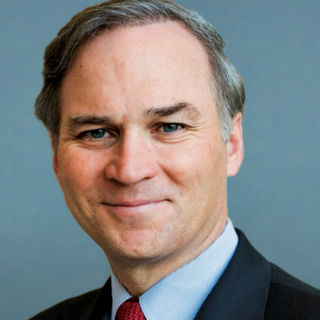
According to the Department of Veterans Affairs, an estimated 1.3 million veterans received specialized mental health treatments from the VA for mental health related issues in 2011. Last year, CNN reported that, according to a Harvard Medical School study, “The rate of major depression is five times as high among soldiers as civilians…and post-traumatic stress disorder (PTSD) nearly 15 times as high.”
Mental illness is both innately personal and profoundly national. This is not “their” issue — it is our issue. The mental health of our military men and women creates a wake throughout our society that is directly connected to the health of our economy, our families, our military readiness, and our overall well-being as a nation.
Mental illness is linked to unemployment: many young military veterans return home struggling to find work. Being out of work makes veterans more susceptible to depression; while for those diagnosed with mental illness, work can be harder to come by. It’s a vicious cycle that has a snowball effect on those with mental illnesses, as well as our economy.
Additionally, many military members place great value on remaining strong in the face of adversity, so it can be hard to admit to any illness, physical or mental. When left untreated, depression, post traumatic stress injuries, and even anxiety, can lead to sleep difficulties, obesity, chronic pain, or substance abuse. These associated illnesses take a toll on the VA medical system; mental and substance use disorders caused more hospitalizations among U.S. troops than any other cause in 2009.
Behind the scenes, families also bear the pain of mental illness. In particular, for families who have lost a loved one to suicide, the mental costs of war are especially tough. Grieving family members’ symptoms can show up in the form of physical and mental health problems, perpetuating a cycle of mental health issues.
There are a number of programs and resources available through the Department of Defense and the Department of Veterans Affairs. In fact, if you are a service member, veteran, or a family member of one, I encourage you to get screened and take advantage of the programs available:
- The Mental Health webpage at the Department of Veterans Affairs offers resources on programs, treatments, screening tools, and VA benefits and claims.
- The Real Warriors Campaign provides success stories from military service members who have received treatment and made recoveries from mental health issues.
- The Defense Centers of Excellence for Psychological Health and Traumatic Brain Injuryprovides information and resources about psychological health, post-traumatic stress disorder (PTSD), and traumatic brain injury.
- Maketheconnection.net connects veterans and service members with others who have had similar military experiences, whether facing similar deployments, coping with the death of a friend or family member, or transitioning from service.
However, while a range of programs and resources exist, much remains to be done to ensure our military heroes have the resources they need to manage the stress that comes before, during, and after combat or deployment. Our government has a responsibility to do everything possible to equip them to succeed after serving their country. Recently, the House of Representatives voted for mental health services, suicide prevention activities, traumatic brain injury treatment, and homeless veterans treatment, services, and job training.
At the end of the day, though, mental health is a conversation that requires involvement from our entire society. Despite existing resources, many veterans and others suffering from mental illness may choose not to take advantage of resources or programs, fearing that if their superiors, peers, or family members know about their emotional and mental difficulties, it may jeopardize their chances for promotion or damage relationships. The National Institute of Mental Health estimates 9.6 million adults in the United States – both servicmembers and civilians – suffer from serious mental illness (SMI); it is difficult to say how many of those millions are living in the shadows, their needs unspoken and unsupported.
That is why one of the most crucial pieces of the mental health puzzle is to correct the stigma surrounding mental illness. May is Mental Health Awareness Month, a time to shed light on the very real challenges that people with mental illness, including our men and women in uniform, face. Additionally, this weekend is Memorial Day, when we commemorate the fallen, the warriors, the wounded, and those on the frontlines today.
There is no better time than now to educate ourselves and show our support for our military heroes and all who battle mental illness. You can learn more about Mental Health Awareness Month and our military here. Mental illness is not just an issue that impacts a select few – it impacts all of us. Our government must be engaged, our communities must be engaged, and each of us as individuals must be engaged. It is within this context that our nation has an opportunity take mental illness out of the shadows and bring it into the light.
Randy Forbes represents Virginia’s Fourth District in Congress.










